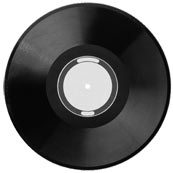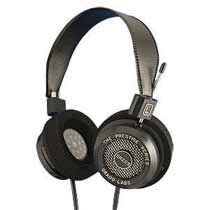Home Audio Systems Guide
What's the best home audio system? How do the different components work to create great stereo sound?
This is an important question, since unless you're at a live concert, the quality of your listening experience is entirely under your control!
A bit scary, but I'm here to help you enjoy it and get great sound... Let's go!
Note: this section on your home audio system is to help you figure out how to get the best sound quality for classical music (since that's what this site is about), but the principles work for any other kind of music too).
Contents:
Home Stereo System Setups
Amplifiers
Speakers
Recorded Music
While the ultimate music experience is usually a live performance by great artists in a quality venue, for most of us this doesn't happen too often. How often can you hear Wagner at the Bayreuth Festspielhaus, or Vivaldi at La Scala in Milan? (Not often enough!)
Lucky for us, there's an alternative: recorded music.
The process of producing and recording live music is itself a complex form of art.
The fact that we can now carry around in our pockets the works of master composers played by world-class musicians in superb high quality is astonishing! It was unimaginable 100 years ago.
Exactly how you listen to recorded music, though, depends on several things...
- Do you want to listen to music in a set environment, like your home?
- How much of an audiophile are you?
- How much money can you put towards a music system?
- And finally (for the home experience) how big is your listening room?
The answers to these questions will help you decide what to do!
Whatever home audio system you choose, there is one basic truth that affects how you get the best sound quality for your music. Burn this into your brain:
The best sound quality only comes from the best quality recording It sounds obvious, but up until the 1970s and 80s people believed that all you needed was really good hi fi speakers in your home audio system. They thought that the rest of the system, particularly the record deck, was much less important.It was Ivor Tiefenbrunn of Linn Products in Glasgow who showed that it was actually far more important to have a great sound source to start with.
He was famous for showing up at home audio exhibitions with a tiny pair of bookshelf speakers, driven by a mid-range amplifier, but fed by his own company's revolutionary record deck, the Linn Sondek LP12.
Listeners were staggered at how these small, cheap hi fi speakers could produce such an amazing sound. It went against all existing beliefs!
So, the message is clear: whether you use an iPod or a $20,000 home audio system, it's very important to have the best quality recordings you can.
The best music file formats today are the 'lossless' formats, such as Apple Lossless Audio Codec (ALAC), and FLAC. These are perfect copies of the studio recording - absolutely no details are lost (the best for classical music!).
The main drawback to these files is their size - they take up a lot of space on your hard drive. Most of my classical music is in lossless format, and it accounts for about half of everything on my computer!
So it makes sense to have smaller, compressed files for your iPod (such as AAC), and keep the lossless files for your home audio.
Different setups
There are basically three possible set-ups for a home audio system...

- Vinyl-based system, where the majority of your music is on vinyl disk. To get the best sound quality for classical music, you will need the best record deck you can afford.
This will plug into an amplifier of some sort, either an "integrated" amplifier, which is all in one box, or a "pre-amplifier" which has the controls for volume and balance. After this, the signal goes into a "power amplifier", which drives the loudspeakers.As I explained earlier, it's important to spend the largest part of your home audio system budget on the record deck, the second largest chunk on the amplifier section, and the smallest part on the actual speakers.
You can see my guide on transferring vinyl LP to MP3.
- CD-based system. Here, most of your music is on CD, and you have a Compact disc player instead of a record deck.
The same principles apply - the CD player itself should be your biggest investment. The rest of the system is the same as a vinyl-based one.
- Digital file format based system. This is the current "state of the art". You can use this system either on-the-go (mp3 players), as well as at home. So how does this type of system work?
Essentially, you have a big external hard drive ("Network Attached Storage" or NAS), which is attached to your home network. On this drive, you can store ALL your music: your ripped vinyl and CDs and your downloaded music files.
Hopefully you've downloaded really high quality files! These digital files are then converted to an audio signal by a dedicated Digital Audio Converter (DAC). This is like the sound card in your computer, but many, many times higher quality.
Finally your nice, high quality audio signal goes through a normal amplifier and speakers.
In this system, your biggest investment will be the Lossless audio files. The next most important component is the DAC (Digital to Audio Converter).
Don't skimp here! The amplifier should be reasonably good quality. If you have to cut any financial corners, it should be for the speakers.
Amplifiers
Amplifiers come in different types of boxes, from the single-box integrated amplifier to the two-box pre- and power amplifier combination.There's another possibility, where the power amplifiers are actually built into the speaker cabinets (active loudspeakers, eg. Meridian). The result is a simpler home audio system, with less space, and a better sound to boot!
Speakers
Loudspeakers come in two basic formats. Traditional speakers use speaker cones that are moved by electromagnetic forces.
Most speaker cabinets have at least two drivers, one for high notes and one for low notes, and they share the middle notes.
Some special types of speakers, like some from Bose, recreate live performances by having multiple speaker cones pointing at different angles.
The other type of loudspeaker is the "electrostatic" design. Electrostatic speakers are larger than normal cone-driven speakers, but are very thin (only about one inch!).
They have amazingly fine and detailed sound, but sometimes the bass isn't very good. Because of the highly detailed quality, these are my favorite types of speakers for classical music.
Headphones

Another option are headphones (especially audiophile headphones for classical music lovers). Headphones have one big advantage over speakers: they're cheaper, and the sound quality near the top end is almost as good!
However, one thing headphones can't reproduce is the feeling of a live performance, where the sound bounces around the surfaces of the room and hits your ears as a blend of pure and reflected sound. But depending on your listening tastes this might not matter.
Also of interest are noice-cancelling headphones. This simply means that the headphones block outside noise in some way or another. This means that you can hear all the fine nuances in Wagners operas or the emotion in a Chopin nocturne anywhere, without the outside world getting in the way!
There are two types of noise canceling headphones: passive headphones, which seal your ear against outside noise ("in-ear" headphones), and active headphones, which are bigger and use electronics.
Active Noise Cancelling headphones are a clever invention developed by Bose, originally for airline pilots. They work by having a small microphone built into them that picks up the outside noise.
Electronic circuitry inside the headphones then "inverts" the sound, (ie. reverses the phase) and puts this back into the sound the headphones produce. This reduces the effects of unwanted outside noise, but the effect isn't perfect...
In fact it has several limitations:
- It works best with lower frequency sounds.
- It works best with continuous sounds, such as aircraft engine noise, instead of sporadic sounds you hear on the street.
- You hear a slight high frquency hiss, which comes from the circuitry.
In-ear headphones are different.
By sealing off your ear, in-ear headphones offer a form of passive noise-cancellation. A lot of people think that high-quality passive headphones have a better sound, one that's sharper.
I actually prefer in-ear noise cancelling headphones, since I agree that they sound better (especially for classical music!). I also find them a lot more convenient to carry around - and they won't die out on you suddenly!
It's important to keep in mind that the best home audio system always focuses on the source of the music instead of the amplifiers, speakers, or headphones. Use this knowledge to build a great setup and enjoy classical music perfection!
More Information
Here's what I hope is a small goldmine of information for classical music lovers who want to learn more about hi fi and audio topics. Some of these articles may be a bit too audiophile-techy, so please excuse that. Anyway, I hope they help you achieve a better sound!
A short introduction to music file formats, arguably the most important component of the music chain!
Are active loudspeakers a better investment? Find out here...
Learn about SACD players - are they worth the extra expense?
Turn up the volume: the different types of home audio amps.
How to quickly and easily improve your sound quality with a stand-alone digital audio converter.
The history of compact disc players, plus my best picks.
Learn why I think electrostatic headphones are the best headphones for classical music...
Heard the myth about home audio cables?
What a stereo preamplifer is and when to use one.
A look at the Senheiser headphones range.
What's the best iPod dock? Here's our extensive guide...
Learn how to convert your vinyl LP to MP3 and CD formats.
A basic guide to listening room design and acoustics - this can have a big impact on your final sound!
Looking to fill a small room with sound? Here's a guide to the best bookshelf speakers.
The ultimate high end stereo speakers for classical music...
A look at electrostatic speakers and their special characteristics.
How audiophile headphones can give you better sound for less money than a loudspeaker setup...


